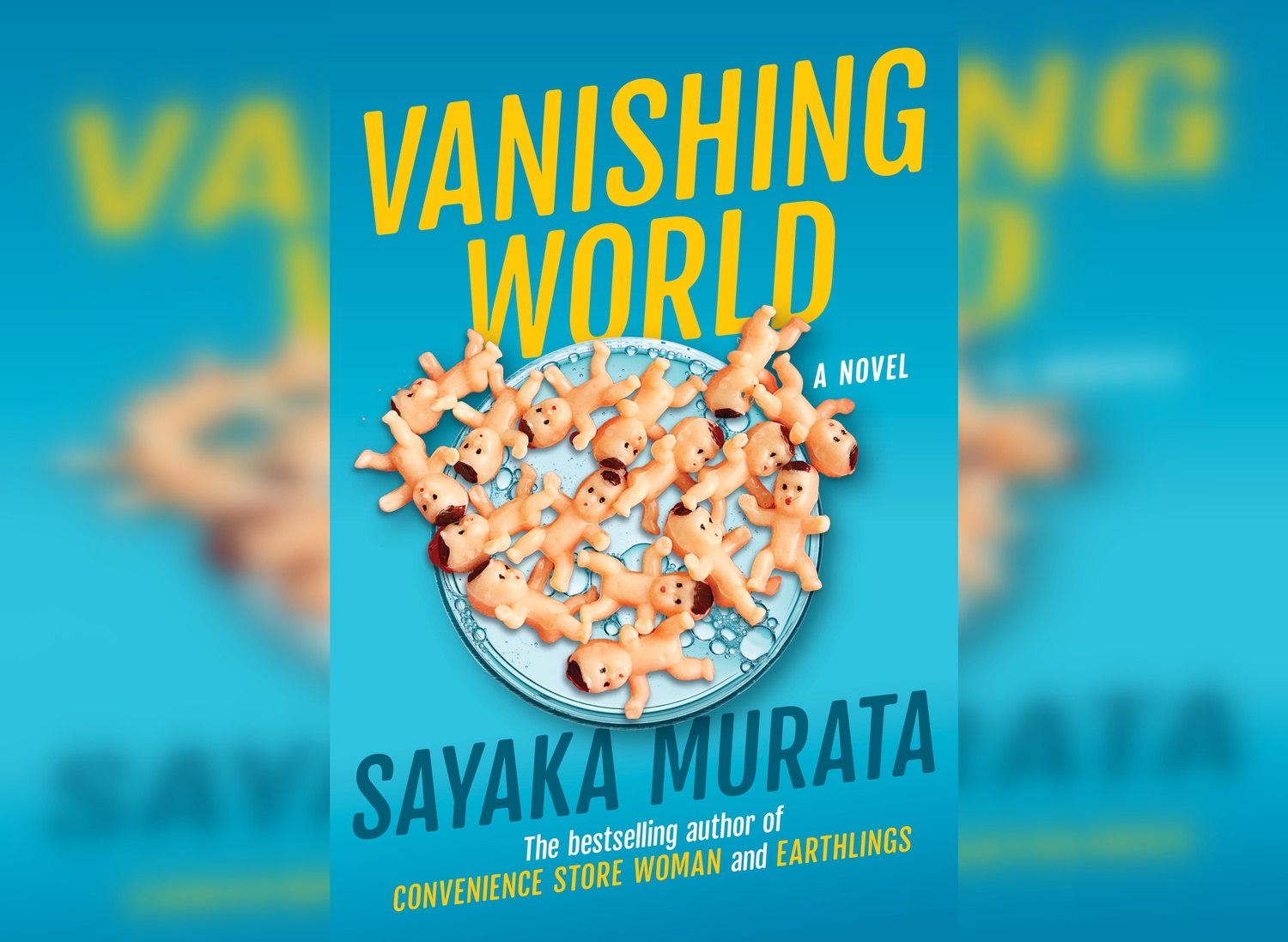
News
Summers Will Not Finish Semester of Teaching as Harvard Investigates Epstein Ties

News
Harvard College Students Report Favoring Divestment from Israel in HUA Survey

News
‘He Should Resign’: Harvard Undergrads Take Hard Line Against Summers Over Epstein Scandal

News
Harvard To Launch New Investigation Into Epstein’s Ties to Summers, Other University Affiliates

News
Harvard Students To Vote on Divestment From Israel in Inaugural HUA Election Survey
‘Vanishing World’ Review: A World Without Sex
4 Stars

Amane thinks she’ll be the last person in the world to have sex. In Sayaka Murata’s novel “Vanishing World,” all children are conceived using artificial insemination. To have sex with one’s spouse is considered incest, and most would rather fall in love with anime characters than real people. As a child, protagonist Amane is shocked to learn that her parents defied social norms to conceive her through copulation — an obsolete and disturbing practice in this alternate world.
Murata’s third novel to be translated into English, “Vanishing World” is equal parts story and thought experiment. Following Amane, an otherwise ordinary woman with a bag full of fictional lovers and a now-antiquated sex drive, the book is an entertaining and thought-provoking commentary on modern society and the future of relationships and love.
The novel’s writing style, translated by Ginny Tapley Takamori, is compulsively readable. The book’s quirky, socially curious main character — a Murata hallmark — leads the reader through a world that, despite its strangeness, is presented with a matter-of-factness that makes its workings both easily understandable and compelling in their oddities. Murata takes care to thoroughly explore the social consequences of the premise she has created, as the ubiquity of artificial insemination begins to erode the idea of family itself.
Nowhere in the novel is this clearer than in the high-tech Experiment City, where the family unit has been abolished, children are raised communally as nameless “Kodomo-chans,” and scientists are working to develop an artificial womb that would let men get pregnant. Experiment City feels fully formed as a dystopian world — a pristine, isolated, and sexless city that’s as alluring as it is unnerving.
Because this fictional society is explained so plainly, the book is able to make its readers question the conventions of not only the novel’s world, but our own. Sure, it’s bizarre that the book’s characters find marriage to be little more than a financial agreement between roommates — but is it any less strange for our current society to place so much importance on finding a spouse and starting a family? In depicting a social environment so different from our own, “Vanishing World” deftly defamiliarizes the world we live in as well.
The novel is character-driven, as it depicts Amane’s daily life through the years with little focus on plot. This approach generally succeeds — Amane and her world are interesting enough to support the novel — but it also quickly moves the book’s focus away from its starting premise. While Amane’s differing views from her mother regarding copulation become a source of tension between them, and she believes that her upbringing has “cursed” her into desiring sex, her mother’s own perspective feels underexplored. Allowing readers to hear her motivations for choosing to conceive Amane naturally would have created a more balanced understanding of an opposing viewpoint.
“Vanishing World” takes on a lot of big questions: What should be the balance between tradition and technological advancement? Nature and nurture? How does society construct ideas about love, sex, and family? The novel approaches each of these topics with nuance and restraint, rarely moralizing and instead letting readers come to their own conclusions. Even as Amane criticizes the Kodomo-chans’ lack of individuality, she acknowledges her own unintentional tendency to conform.
It may be because of this ambiguity that the novel’s ending feels out of place. In attempting to make a point about sexuality, the last few pages end up introducing a whole host of new questions and concerns about consent in a society where most of the adult population is sexually inexperienced — complicated ethical questions that warrant more page time than they’re given.
“Vanishing World” is a strange little book. It’s a novel that takes nothing for granted, asking readers to question a wide scope of social norms that range from the purpose of sex to the institution of family itself. This book cements Murata’s place as a noteworthy voice in modern Japanese literature, and her work will surely continue to surprise and provoke readers for years to come.
—Staff writer Samantha H. Chung can be reached at samantha.chung@thecrimson.com. Follow her on X @samhchung.
Want to keep up with breaking news? Subscribe to our email newsletter.
